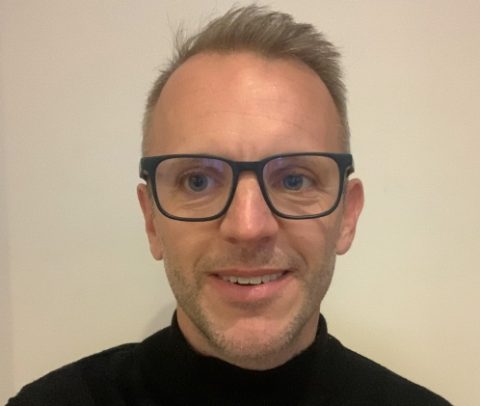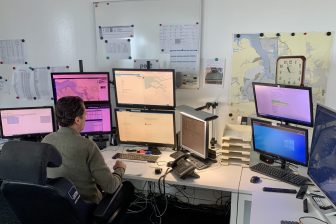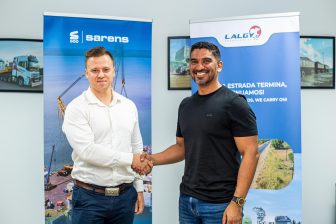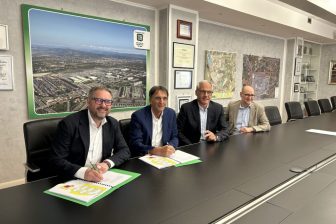
From pipelaying in Mexico to submarine cables, this is the world of Kevin Green
There was no clear career path in the mind of Kevin Green, Regional business development manager, Energy projects – Europe at GAC, when he set out to study Oceanography and Geology. It was more out of genuine interests. However, that has brought him through the entire offshore energy industry and then to the position in which he is now.
The tasks now include identifying new sectors where GAC can bring value to customers’ projects, supporting the existing customers, providing support to other offices within the company and formulating strategic plans with GAC’s global Energy team, and setting long-term objectives and targets.
There is no average day
“As cliché as it sounds, there is no average day as every day is different for me. I can be engaging customers through various communication channels; attending customer meetings within Europe and Africa; keeping up to date with news on offshore projects through a variety of sources such as newsletters, third-party intelligence tools, social media and the GAC network; representing GAC at industry events; visiting regional offices to engage and discuss business strategies and ideas with colleagues; or writing tender proposals or reviewing contracts,” Green says.
He points out that there is plenty of variety on the job. “The fact that I get to engage with a wide spectrum of individuals, both within the GAC team and outside, and also the variety of topics I can be involved in. One day, it may be a pipelaying project on the East Coast of Mexico, and the next day, it may be a submarine cable installation project that runs through multiple countries.
How did it start?
As already noted, Oceanography and Geology studies in university came out of pure curiosity, but the journey continued when a seismic exploration company, WesternGeco offered him the job of a trainee navigator onboard a seismic vessel.
“I recalled that a friend who left university the year prior to my graduation told me about his job working offshore. The part that spiked my interest was the 6 weeks of paid holiday every 6 weeks. I was sold on this idea and after graduation, I sent many letters and CVs to offshore companies,” Green said.
With very little idea of what it entailed, Green accepted WesternGeco’s job offer and was told that he would be based in Angola – a country that he was unfamiliar with. “Several vaccinations later, I was on a helicopter out of a Luanda heliport, ready to start my offshore adventure,” he said.
“My offshore career progressed up to the point where being on a ship for six weeks at a time become too much for me. However, I was not ready to give up on seeing the world and move to an office job. I went on to work onshore, providing logistical support to the very projects I had been executing offshore. This gave me the opportunity to work in many unique and wonderful places up and down the West and East coast of Africa, the Black Sea, and Central and South America,” Green said.
Green ended up working in the world of oil and gas in different countries and in 2020 came back home to the UK, to work out of his home country for the first time.
Reflection and change
Since Green started working in the offshore Oil and Gas sector in 2001, there has been plenty of change and decline, especially in the seismic exploration sector. “There will be a continued need for seismic exploration, but we can also see many of the Oil (now Energy) majors investing more into the renewable energy segment,” he said.
“The evolution shall no doubt continue towards renewable energy. More and more investments will be made into offshore renewable energy sources, with offshore wind being the most dominant source for the time being. However, there will be other sources such as wave energy, offshore solar panels and tidal energy, and I would not be surprised to see other ingenious ways of creating sustainable energy in the future,” adds Green.
The good news, in his opinion, is that no matter the means of producing renewable energy, there will be a logistics and project support connected to it, a welcome sign for GAC. Not only will there be development of new technology, offshore wind (especially floating) will start to enter new frontiers in South America and even Africa – just like how oil exploration went to new frontiers and deeper waters. With its global footprint, GAC shall be able to support these projects as they develop.
Just as with technology, evolution is critical to success. “The moment you stand still, you begin to go backwards. It is crucial that we as an organisation evolve with the changing offshore market,” Green says, adding that while the general principles of supporting an offshore project may not change, there will still be subtle differences between supporting a drilling campaign versus an offshore wind farm campaign.
“It is these subtle differences that we need to stay on top of and our staff must get the relevant training and experience to allow them to reassure customers that we understand their needs and can deliver successful support to their projects,” he concludes.
Read also:
- People of the industry: Nancy Monbaliu, UECC
- People of the industry: Simon Højgaard Ryesberg, UPF Group
You just read one of our premium articles free of charge
Register now to keep reading premium articles.




